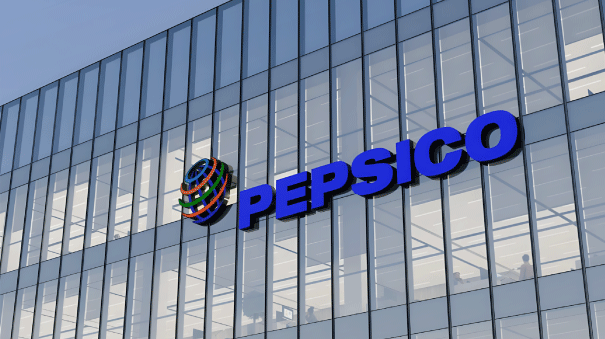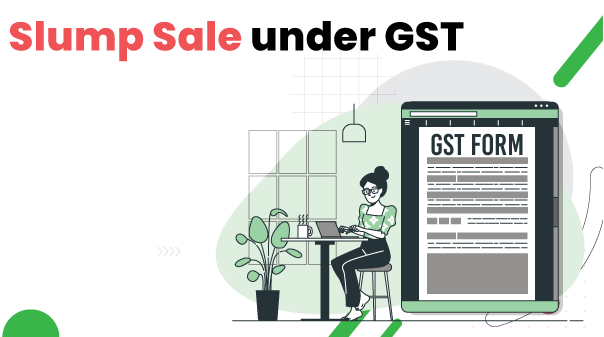One of the preferred ways of business transfer is through a slump sale. Slump sale, in simple terms, is a transfer of a business, either in whole or in part, from one entity to another, for a lump sum. Wherein the lump sum is arrived at without attaching any specific values to individual assets and liabilities.
Slump sale has been defined under Income Tax Act, 1961. Under Sec 2(42C) “slump sale” means the transfer of one or more undertakings, by any means, for a lump sum consideration without values being assigned to the individual assets and liabilities in such sales.
Explanation 1.—For the purposes of this clause, “undertaking” shall have the meaning assigned to it in Explanation 1 to clause (19AA).
Explanation 2.—For the removal of doubts, it is hereby declared that the determination of the value of an asset or liability for the sole purpose of payment of stamp duty, registration fees or other similar taxes or fees shall not be regarded as assignment of values to individual assets or liabilities.
Explanation 3.—For the purposes of this clause, “transfer” shall have the meaning assigned to it in clause (47);
Section 2(47) of the Income Tax Act, 1961 enumerates the following kind of transactions:
- Sale, exchange or relinquishment of the asset;
- Extinguishment of any rights concerning a capital asset;
- Compulsory acquisition of an asset;
- Conversion of capital asset into stock-in-trade;
- Maturity or redemption of a zero-coupon bond;
- Allowing possession of immovable properties to the buyer in part performance of the contract;
- Any transaction which has the effect of transferring an (or enabling the enjoyment of) immovable property; or
- Disposing of or parting with an asset or any interest therein or creating any interest in any asset in any manner whatsoever.
As is seen from the above provision, almost all the transfers are brought within the ambit of Slump sale.
Under GST, Schedule II of the CGST Act, 2017 talks about activities that are treated as a supply of goods or services.
Whether Slump-Sale is Supply?
GST law provide the definition of supply under Section 7(1) of CGST Act, 2017 the expression “supply” includes, all forms of supply of goods or services or both such as sale, transfer, barter, exchange, licence, rental, lease or disposal made or agreed to be made for a consideration by a person in the course or furtherance of business. From the above mentioned definition, it is clear that slump sale does not amount to sale of goods or Service, as it is a contract for sale of business as a whole or part as a going concern and not mere sale of goods. Further, slump sale is a transaction not carried out in the course or furtherance of business.
However, the definition of “business” under section 2(17)(d) of CGST Act 2017, supply or acquisition of goods including capital goods and services in connection with commencement or closure of business. Due to clause “d” definition of “Business”, “Slump-Sale” fit in to the definition of “Business” hence “Slump-Sales” would be treated as Supply and GST will be comes in to the picture.
Clause 4(c) provides that where any person ceases to be a taxable person, any goods forming part of the assets of any business carried on by him shall be deemed to be supplied by him in the course or furtherance of his business immediately before he ceases to be a taxable person, unless-
- The business is transferred as a going concern to another person; or
- The business is carried on by a personal representative who is deemed to be a taxable person.
In light of the above provision it is clear that Slump-Sales is excluded from the list of supply of goods and so It becomes very obvious that transfer of business as a going concern is considered to be a supply of service and such clarification also supported by the definition of Service provided in Section 2(102) of CGST Act, 2017 which state “services” means anything other than goods, money and securities but includes activities relating to the use of money or its conversion by cash or by any other mode, from one form, currency or denomination, to another form, currency or denomination for which a separate consideration is charged.
As per Notification No.12/2017-CT(Rate) dt.28.06.2017, service by way of transfer of business as a going concern as a whole or part thereof is exempt from GST. But the term going concern is not defined anywhere under GST. Thus,
- Transfer of business assets is considered as the supply of goods.
- Transfer of business is considered as the supply of services.
- Transfer of business as a going concern is considered as the supply of service and exempt from GST as per the above notification.
We need to remember that “not a supply” and “exempt supply” have different treatment in GST Taxation. If something is not a supply it means we don’t even need to report it. No reversal of input tax credit will be required for it. We don’t need to include it while calculating aggregate turnover. Now we will treat it as an exempt supply it will have its own consequences. It will be reportable. It will attract reversal of input tax credit. Sometime it may be a big reversal as sale price at the time of transfer may include goodwill also. Such inclusion may attract questioning by authorities as to its value.
Valuation of Slump Sale
Rule 28 of CGST Act, 2017 provides three bases for valuation in case of consideration is in form in form of Money,
- Be the open market value of such supply.
- If the open market value is not available, be the value of supply of goods or services of like kind and quality.
- If the value is not determinable under clause (a) or (b), be the value as determined by the application of rule 30 (Value of supply of goods or services or both based on cost) or rule 31 (Residual method for determination of value of supply of goods or services or both), in that order.
From the above three bases of Valuation it can be noted that,
- Slump sale is not an open market sale, since it is not normally made available in the market.
- Each slump sale is unique and there cannot be any services of a like kind and quality.
Thus in the light of the above analysis it is clear that Rule 28 is not applicable.
Now move towards the Rule 30 (Value of supply of goods or services or both based on cost). Cost of acquisition is not applicable as the supply is one of service of business as going concern, so we have to rule out the Rule 30.
Now move towards the Rule 31 (Residual method for determination of value of supply of goods or services or both). The option we are left with is only the transaction value. Hence we may conclude that the “Transaction value” will be the net consideration agreed between the parties.
Availability of ITC in case of Slump-Sale
Since the lump sum consideration received for ‘Slump Sale’ of business is exempt from GST, as stated above thus no tax would be charged on the consideration exchanged between the parties. The transferor would be issuing a bill of supply as per section 31(3) (c) of the CGST Act, 2017. Since no tax would be charged on the consideration, therefore the question of availability of input tax credit would not arise at all.
Transfer of ITC lying in electronic credit ledger in the books of transferor:
Section 18(3) of CGST Act, 2017 state that “Where there is a change in the constitution of a registered person on account of sale, merger, demerger, amalgamation, lease or transfer of the business with the specific provisions for transfer of liabilities, the said registered person shall be allowed to transfer the input tax credit which remains unutilized in his electronic credit ledger to such sold, merged, demerged, amalgamated, leased or transferred business in such manner as may be prescribed.” As per Section 18(3) of CGST Act 2017 read with Rule 41 of CGST Rules 2017 it is clear that the registered person shall be allowed to transfer the input tax credit which remains unutilized in his electronic credit ledger to such sold, merged, demerged, amalgamated, leased or transferred business.
The process to follow in case of Slump sale
- A registered person shall, in the event of sale, merger, de-merger, amalgamation, lease or transfer or change in the ownership of business for any reason, furnish the details of sale, merger, demerger, amalgamation, lease or transfer of business, in FORM GST ITC-02, electronically on the common portal along with a request for transfer of unutilized input tax credit lying in his electronic credit ledger to the transferee.
- The transferor shall also submit a copy of a certificate issued by a practicing chartered accountant or cost accountant certifying that the sale, merger, de-merger, amalgamation, lease or transfer of business has been done with a specific provision for the transfer of liabilities.
- The transferee shall, on the common portal, accept the details so furnished by the transferor and, upon such acceptance, the un-utilized credit specified in FORM GST ITC 02 shall be credited to his electronic credit ledger.
- The inputs and capital goods so transferred shall be duly accounted for by the transferee in his books of account.
Simplify Your GST Compliance with Expert Solutions
Understanding the GST implications of a slump sale and the GST on the transfer of a business can be complex, requiring careful attention to compliance requirements and proper handling of input tax credit transfers. To ensure accurate tax management and stay compliant with evolving GST regulations, businesses need reliable support from in-house GST professionals and efficient automation tools.
With comprehensive GST compliance solutions, you can streamline your tax compliance, automate critical processes, and avoid penalties. Whether it’s managing ITC, handling GST filing, or ensuring data accuracy through reconciliation, the right GST and e-invoicing software helps you optimize your cash flow and maintain audit-ready records. Stay ahead of regulatory changes and ensure that your GST returns are filed correctly and on time with access to expert support and one-stop GST solutions that cater to a wide range of businesses in 2025 and beyond.

